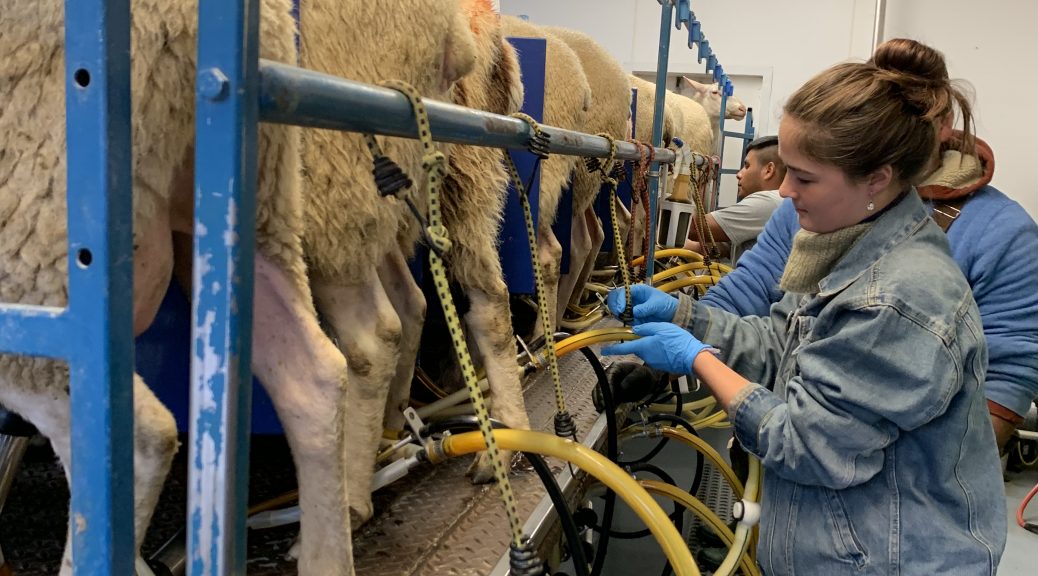
Visit to the sheep farm
Post by Elizabeth Shaw. Colgate Class of 2022.
The majority of our class visited a nearby sheep farm on October 18, 2019 to learn about their two H-2A employees. The H-2A visa program offers seasonal employment for workers for up to 10 months out of a year. There are 140,000 such workers in the U.S. and almost all of them are horticultural laborers, which makes Alex and Yobani, the sheep farm employees, exceptional. According to the owner, the majority of dairy workers are undocumented, and if the government were able to deport all undocumented immigrants milk would disappear from store shelves in 48 hours and there would be no ice cream within the week. The farm qualified for the H-2A program because they only milk their flock for 10 months out of the year, while cows are milked year-round.
The owner went through many of the complications and regulations of the H-2A visa program. Farms are required to pay workers the set wage of $13.25 per hour, and there is no overtime. The farm must also cover the costs of transportation and housing. The owner also stressed the difficulty of applying to the program and the regulations that the workers must face once they arrive. According to her, H-2A workers are the most regulated group of employees in the country. She also clarified that there is virtually no transfer of H-2A workers to permanent residency. These data make sense because of our in-class discussions about workers returning home after gaining experience abroad in relation to the return model of migration. Alex and Yobani agreed that they will likely apply new ideas about hygiene and farm organization after returning home.
In addition to the prospect of returning home to augmented wages, both Alex and Yobani are missing families at home. Their paychecks fund the construction of new homes south of Mexico City. Alex heard about this opportunity from a distant relative working in the area and jumped at the prospect. Even with the gruelling hours, and lack of social activities, both Alex and Yobani are planning to return next year. They are also learning English at a local library; however, transportation and timing have proved difficult. They speak very little English and neither of the other two employees speaks Spanish. The owner likes to speak into Google Translate in order to communicate with Alex and Yobani. Despite their isolation from Spanish, they were not too eager to answer the questions Hilary posed in Spanish. They seemed uncomfortable and with our circle of chairs facing the two of them standing, the rhetoric of the discussion reflected more of an interrogation than a conversation.
After following them to the milking parlour, they seemed more comfortable. Alex showed me how to attach the apparatus to the sheep’s teats and how to sterilize after. They smiled and laughed along with us as we struggled to mimic their swift motions. Even with the bureaucratic difficulties of this process, the farm owner stressed that this year had been the best year so far because of Alex and Yobani. They are the hardest workers she’s ever employed and she desperately wants them to return next year. She left us with the message to “do something about it.” She finds it imperative that this program be expanded to protect undocumented workers and to meet the labor demands of the dairy industry.